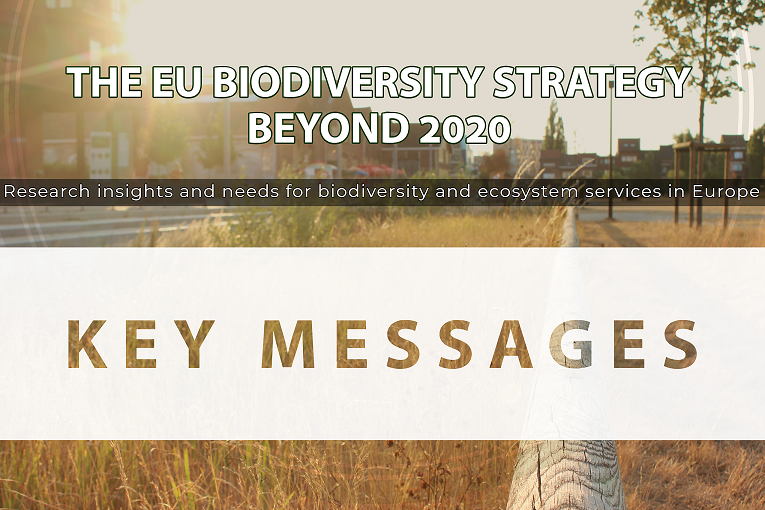In June 2019, researchers, scientists, decision-makers, and practitioners of all disciplines convened in Ghent for the 2019 ALTER-Net & EKLIPSE Conference. The purpose of this conference was to consider the post-2020 European Biodiversity Strategy and the role of research in shaping this strategy and its goals.
The primary output of this conference is a collection of 12 Key Messages, which have now been published and submitted to the European Commission. These messages result from a multi-phased, iterative consultation survey among the networks’ scientists and other knowledge holders.
Our general message to the new EU biodiversity strategy:
- European and global policies: Europe should take a leading role in establishing an improved global policy on biodiversity.
Our specific messages for the new EU biodiversity strategy:
- Reconnecting society and people with nature for an improved recognition of the value of biodiversity and ecosystem services: to develop initiatives that reconnect people and nature with the potential outcome of encouraging societal and individual mind-sets that recognise human dependence on nature, and the multiple values of biodiversity.
- Decoupling economic development from environmental degradation: to stimulate policies that decouple economic development from environmental degradation, promoting such development within the ecological limits of the planet and the UN Agenda 2030 and its Sustainable Development Goals.
- Core drivers of biodiversity loss and integration across sectors: to target enhanced mainstreaming of biodiversity into other sectoral policies because the direct drivers of biodiversity loss are the consequence of indirect, or core, drivers such as human population density and the consumption of resources. This should include better integration across sectors and the designing of comprehensive biodiversity policy mixes.
- Monitoring and evaluation: to recognize the unique place of monitoring trends in biodiversity and ecosystem services, not only for the implementation of existing policy, but also to provide early warnings if new action is necessary and to guide the development of new policies across all relevant sectors. Future monitoring of biodiversity should pay more attention to those species, habitats and biogeographical areas that have been relatively neglected. Scientific knowledge and expertise, particularly taxonomic, are needed to support monitoring and citizen science should play a greater role.
- Research and knowledge-informed decision-making and implementation: to engage/initiate institutional mechanisms that can effectively synthesise scientific and other types of knowledge and suggest ways in which policy-makers and other societal actors can actively incorporate that knowledge into actions that promote biodiversity and ecosystem services.
- Biodiversity Strategy / Climate change: to systemically address the impacts of climate change on biodiversity.
- Incorporate regional/transnational processes and long-term temporal scales to enhance success and efficiency of biodiversity policy: to give greater consideration of large temporal and spatial scales and processes to enhance its success and efficiency.
- Participation and collaboration for ethical and sustainable decision-making: to provide the ethical foundations for decision-making across generations and emphasize participation of diverse stakeholders to foster the integration of various forms of knowledge in policy- and decision-making while promoting shared responsibility.
- Restoration of ecological functions: to target restoration of ecological functions as an important tool to conserve biodiversity and ecosystem services, including those involved in Nature-based Solutions.
- Nature-based solutions (NbS) for sustainable development and nature conservation: to promote the use of NbS whenever possible, to better integrate socio-economic, conservation and other environmental objectives.
- Specificity of freshwater biodiversity: to explicitly address the conservation and sustainable use of inland water biodiversity.
If you would like to know more about the arguments behind each of these key messages, please visit the ALTER-Net website.
